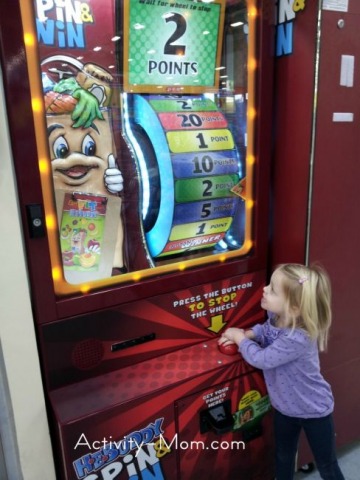
In my grandparents’ day, cigarettes were sold to children. By my day that was mostly a thing of the past, but I am old enough to remember how groceries and other merchants used to hawk candy cigarettes to children in the check-out lines. Think of sugary little Camels, Marlboroughs, and Lucky Strikes. What’s the big deal? They were only candy, right? Right, but the purpose was to generate future cigarette users. For the grocery stores, and for the tobacco companies which allowed candy manufacturers to use their trademarks, it was an investment.
Eventually public opinion turned against the sale of candy cigarettes, and most grocery stores stopped carrying them. But the stores have adapted. For example, the H.E.B. grocery store chain encourages children to play the lottery instead. Hey, kids! Now you can play the slots too!
Children don’t actually use money; they use “buddy bucks” which their mommies and daddies get along with their grocery receipts. Think that makes it harmless? Think again: Like candy cigarettes, this too is an investment. H.E.B. and other merchants get kickbacks from the state for selling lottery tickets to adults. The more children they suck into the idea that throwing away money is wonderful fun, the more future customers they have for this racket. Maybe Mom and Dad haven’t thought of that. Count on it, the company executives have.
I am not a Puritan. I don’t think it is a sin to place a little wager. This is not about placing a little wager. Perhaps it doesn’t bother many people any more that an amoral government colludes with greedy merchants to prey upon the poorest and most foolish adults of the community by encouraging them to throw away their money in games of chance which are rigged against them. But must they make it glamorous to children? For shame.